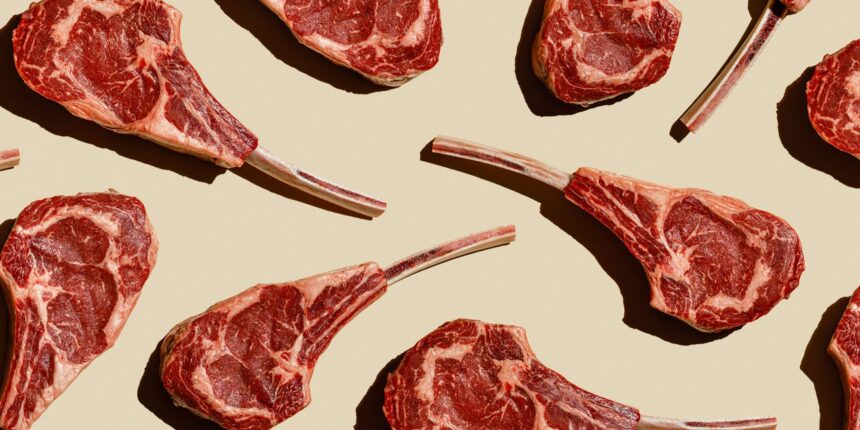Right now, it seems like there’s a protein-ified version of every single food and drink out there—even (and especially) the ones that no one asked for. There’s protein pasta, protein yogurt, protein popcorn (shout-out to Khloe Kardashian), protein cookies, protein pancakes, and even—of all things—protein water (no, we’re not kidding). Doubt us? Take it from a doc: “Protein’s having its moment,” Lisa Ganjhu, DO, a gastroenterologist at NYU Langone Health, tells SELF. “It’s all over the internet.”
We admit, we’ve covered our fair share of high-protein products and recipes due to their relevance and popularity (protein yogurt and protein pancakes? Strongly recommend), but we want to add a disclaimer: Despite the hype, you probably don’t need nearly as much of the macro as influencers, celebrity endorsements, and online food trends would have you thinking. In fact, you’re probably getting more than enough already, according to the experts we spoke to for this story. “Contrary to the chatter on social media, the average American or Western diet contains adequate protein,” Amy Burkhart, MD, RD, a physician and registered dietitian who specializes in gut health, tells SELF. “People tend to eat a little bit more protein than what they probably should,” Dr. Ganjhu says. Even as far back as the early 2000s, the CDC found that US adults were overloading, and the problem has likely only intensified with time.
Of course, that’s not to bad-mouth protein or insinuate that it’s somehow less important than other nutrients. Quite the opposite: It’s a “basic building block for health,” Dr. Ganjhu says. As one of the three macros, it serves a ton of essential functions in your body, like building muscle, regulating blood sugar, and supplying energy for your day-to-day life. That said, more isn’t always better, Dr. Ganjhu warns—and overloading can actually have some negative side effects. Read on for four key signs your protein intake is too high.
How much protein is too much?
Your ideal protein intake depends on a number of factors, including your age, sex, body size, activity level, and overall health, so it can vary widely between people. You will also need to consider your specific fitness goals as you’re making this calculation, Dr. Ganjhu says. If you’re a bodybuilder, for example, “you’re going to need more protein than someone who’s not doing a lot of muscle mass building.”
If you’re wondering where you fall here, health authorities offer some solid general guidelines. Per the National Library of Medicine, protein should make up 10 to 35% of your total daily calorie needs, and various sources report the recommended daily allowance (RDA) for protein calls for a minimum of 0.36 grams per pound of body weight. Going by that standard, someone who weighs 140 pounds would need around 50 grams per day, while someone who weighs 200 pounds would need around 70 grams.
However, the recommended amount is higher for people who exercise regularly and for those over 60. Since protein is key to muscle recovery after intense physical activity, folks who make a habit of working out should shoot for 70 to 100 grams per day, Dr. Burkhart says. Meanwhile, elderly individuals lose muscle mass at a much higher rate than their younger counterparts, so, she adds, they may need as much as 80 to 140 grams.
Read the full article here



